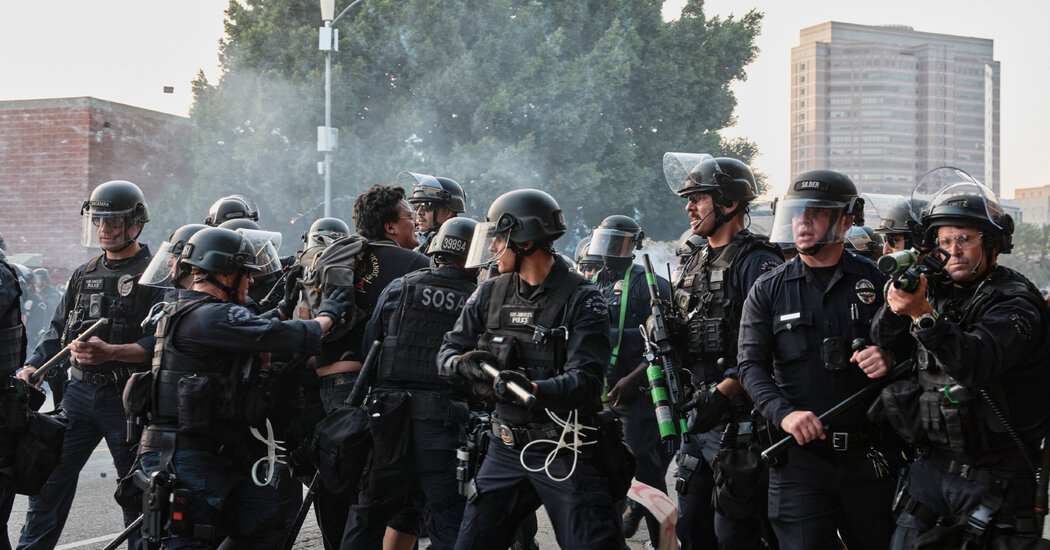
Images from Los Angeles this week of demonstrators throwing rocks and police officers spraying tear gas mirror scenes of other recent confrontations between protesters and the authorities from around the world.
Los Angeles has been convulsed by public outrage since the Trump administration launched a series of immigration raids on Friday. In response to the protests, President Trump called in the National Guard and the military. By Tuesday, 700 Marines were expected to be in the city, along with 4,000 Guard troops.
For social scientists who study the intersection of protests, politics and law enforcement, the scenes unfolding in California broadly follow a script that has played out many times in many other countries. A strong government response to demonstrations that initially start peacefully, they say, often produce increasingly violent confrontations. In some instances, they add, leaders have used the prospect of civil unrest to use heavy-handed tactics or create pretexts to expand their grip on power.
Here are three lessons from international protests, which experts say can help make sense of what is unfolding in Los Angeles.
1. Crackdowns shape optics, and optics shape uprisings.
When states crack down on demonstrators, the images circulated online and in the news media of the resulting clashes shape the public’s understanding of what is happening.
Such optics, experts said, play a critical role in either bolstering or undermining the actions of a government amid unrest.
